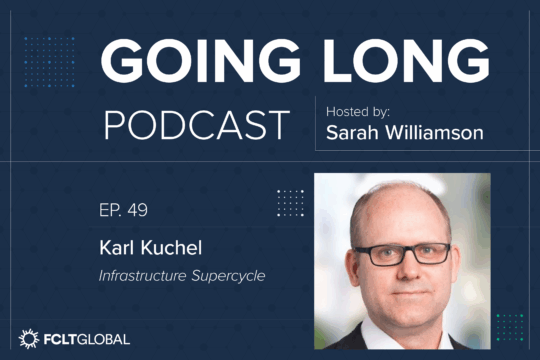Reorienting portfolio strategies and investment management to focus capital on the long term.
In a survey of public and private pension plans and sovereign-wealth fund managers, respondents overwhelmingly agreed that while the ability to invest long-term is an advantage, they do not necessarily have an effective set of implementation strategies/tools to help them realize their aspirations to be long term.
To address this lack of long-term tools for institutional investors (that is, asset owners, including pension funds, sovereign wealth-funds, mutual and other investment funds, and life insurance companies; and asset managers, including investment-management firms and internal portfolio managers at asset owners), FCLT brought together more than 20 experienced investment professionals from nine institutional-investment organizations controlling an aggregate of over $6 trillion in assets under management. Our goal was to develop practical ideas for how institutional investors might reorient their portfolio strategies and management practices to emphasize long-term value creation and, by doing so, be a powerful force promoting a long-term mindset throughout the investment value chain.
The result of our work provides recommendations across five core action areas that all institutional investors must consider: investment beliefs, risk appetite statement, benchmarking process, evaluations and incentives, and investment mandates. We believe these five areas collectively provide a framework for institutional investors to improve long-term outcomes for their portfolios, their investee companies, and ultimately for all stakeholders.


